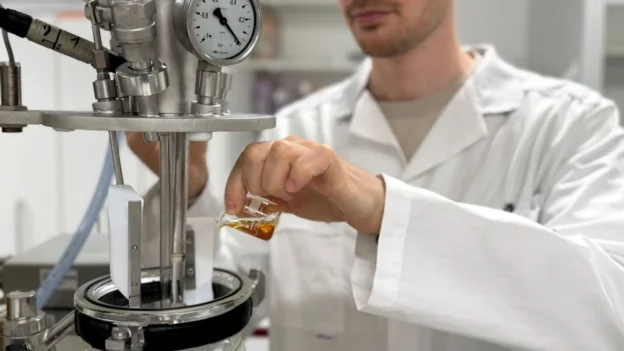The collaboration between LanzaTech, Mibelle Group and Fraunhofer Institute IGB advance development that integrates biotechnology as carbon management to create synthetic oil substitute with similar functional properties, decreasing dependence on crops that have generated deforestation and CO₂ emissions.
The development of palm oil substitute
Through a double fermentation process, carbon gases are converted first into alcohol and then into a fat similar to palm oil. The process uses non-genetically modified oleaginous yeasts. Laboratory tests and validations in the cosmetics industry show that this substitute can be integrated into existing supply chains.
The Mibelle Group has confirmed that the new material replicates characteristics of palm oil used in cosmetics. At the same time, the technology opens up the possibility of producing sustainable aviation fuel(SAF) through the HEFA route, diversifying raw materials and reducing the risks associated with traditional vegetable oils.
The versatility of LanzaTech’ s platform allows for both the production of production of PBS through the ATJ pathway as well as through HEFA. This provides airlines and energy producers with a wider range of options to achieve climate neutrality goals. In addition, the integration of this innovation with the circular carbon economy offers a replicable approach for high-emission sectors.
The project is being scaled up at the Fraunhofer Center for Chemical and Biotechnological Processes in Leuna. The goal is to bring production to commercial levels and demonstrate that sustainable palm oil replacement can be viable on a large scale, both in cosmetics and fuels.
Source: LanzaTech
Photo: Mibelle Group

